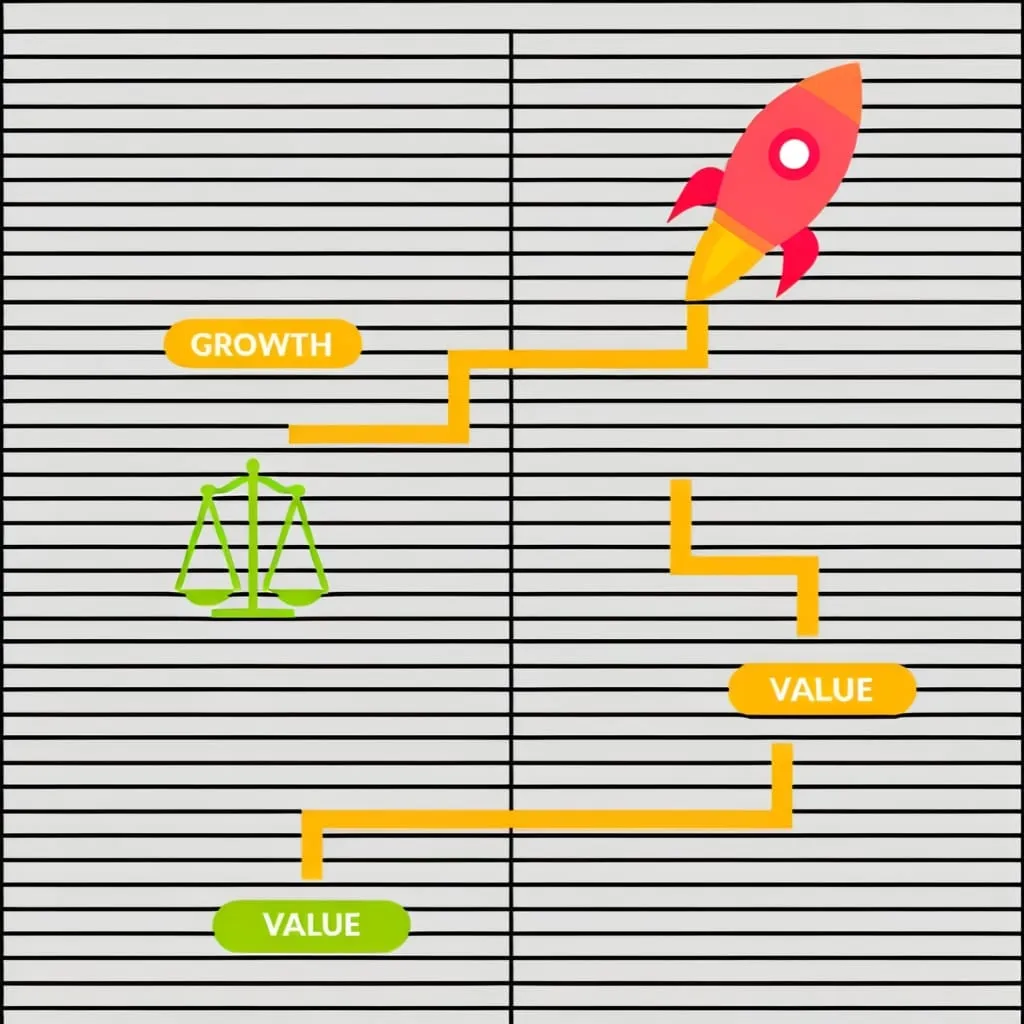Is Growth Investing the Future? A Fresh Perspective
The age-old debate between growth and value investing continues to captivate investors. As we navigate the complexities of the financial market, especially after recent interest rate adjustments, many are wondering if growth investing is the way forward. Let's dive into this topic and explore why growth investing might be poised for a bright future.
Growth investing is all about finding companies with the potential to grow faster than average. These are often young, innovative businesses that plow their earnings back into expansion. The appeal? The possibility of significant gains if you pick a winner. Imagine buying a stock that doubles in value in just a few years. That's the dream that keeps growth investors motivated.
Take tech giants like Microsoft, Amazon, and Google. They've been go-to picks for growth investors for years. Why? Because they keep innovating and growing their earnings. They're at the forefront of game-changing tech like AI and cloud computing. Sure, you might pay a premium for their stocks, but many investors think it's worth it for the potential future returns.
Now, let's talk about how the economy affects growth stocks. When interest rates are low, growth stocks tend to shine. Low rates make it cheaper for companies to borrow and invest in their growth. Plus, it makes future cash flows more valuable, which is great for growth companies that promise big returns down the line.
With recent interest rate cuts, experts think growth stocks could keep outperforming. The U.S. economy has been holding up well, with steady growth and no recession in sight. This stable environment, along with less volatile rates, creates a perfect storm for growth stocks to thrive.
So, what do growth investors look for in a company? They're interested in things like earnings growth (past and future), profit margins, and how well the stock price has been performing. Companies with a track record of strong growth and promising future prospects often catch their eye.
Take Amazon, for example. They've been pouring money into expanding their business, building more warehouses, and venturing into new areas like healthcare and advertising. Investors who believe in Amazon's long-term potential are willing to buy in now, even if the stock seems expensive by traditional measures.
Innovation and big-picture trends play a huge role in growth investing. Think about the rise of AI, cloud computing, and e-commerce. These aren't just passing fads; they're reshaping entire industries. Companies at the forefront of these trends can ride the wave to impressive growth.
Microsoft is a great example. It's not just a tech company; it's like a proxy for the whole tech sector. With its strong finances and fingers in many technological pies, it's a top pick for growth investors. The same goes for companies like NVIDIA and Google, which are leading the charge in cutting-edge tech like AI.
Now, growth stocks can be a wild ride. They tend to be more volatile than the overall market. When things get shaky, growth stocks can take a hit. But here's the thing: they've shown amazing resilience over time. Even if they dip in the short term, their long-term potential often remains strong.
To deal with these ups and downs, some investors use a strategy called dollar-cost averaging. It's pretty simple: you invest a fixed amount of money regularly, regardless of what the market's doing. This can help smooth out the bumps and potentially lead to better returns in the long run.
Let's compare this to value investing for a moment. Value investors are always on the hunt for bargains - stocks they think are trading below their true worth. It's a "buy low, sell high" approach. Value investing has its moments, especially when the economy is uncertain or interest rates are climbing. But in a slow-growth, low-inflation environment, growth stocks often come out on top.
Experts in the field have different takes on this. Some, like Vahan Janjigian from Greenwich Wealth, lean towards traditional value stocks like IBM and Pfizer, especially with recent rate cuts. Others, like Markus Hansen at Vontobel, believe in the lasting appeal of high-quality growth stocks, particularly those with strong dividend growth and competitive advantages.
The luxury sector is an interesting case. Companies like Hermes and Ferrari have built such strong brands that they're less vulnerable to competition. It takes time to establish that kind of reputation, which makes these companies attractive to growth investors looking for long-term potential.
If you're thinking about getting into growth investing, it's crucial to know yourself first. How much risk can you handle? What's your investment timeline? Growth investing isn't for the faint of heart. It requires patience and the ability to weather some storms.
A balanced approach might work best for many people. You could put some of your money into growth stocks while keeping a mix of other investments too. Some investors on Reddit suggest a 50/50 split between growth and dividend stocks. This way, you get a shot at those high growth returns while also getting some steady income from dividends.
In the end, the growth vs. value debate isn't likely to be settled anytime soon. But there are good reasons to think growth investing could play a big role in the future of investing. With the current economic conditions, ongoing innovation, and the long-term potential of growth stocks, investors willing to take on some risk could see substantial rewards.
Remember, investing is personal. What works for one person might not work for another. The key is to understand your own goals, how much risk you're comfortable with, and what's happening in the broader market. By staying informed and patient, and developing a solid strategy, you can set yourself up for success in the ever-changing world of investing.
Investing is a journey, not a destination. It's about learning, adapting, and growing along with your portfolio. Whether you choose growth, value, or a mix of both, the most important thing is to stay true to your financial goals and keep pushing forward. Who knows? The next big market winner could be just around the corner.






